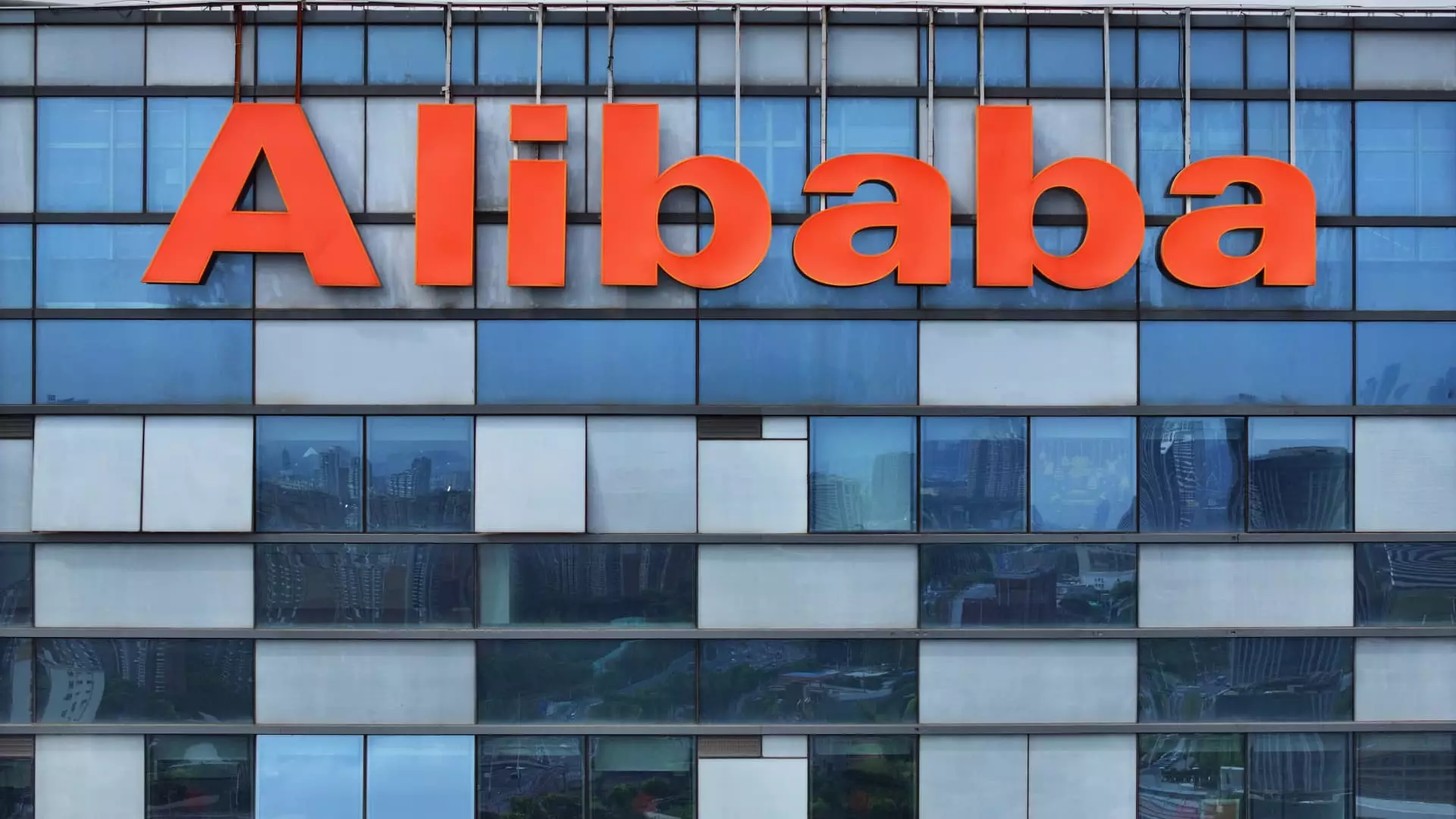Alibaba Group Holdings Limited has made headlines following the release of its impressive quarterly results that highlight growth across its key sectors, specifically cloud intelligence and e-commerce. On Friday, the company’s shares experienced a dramatic increase, peaking at an 11% surge before stabilizing at a 9.18% rise. Such performance demonstrates a renewed investor confidence in Alibaba, a major player in the Chinese technology landscape, after facing regulatory challenges and operational restructuring. Nomura, a global financial services firm, expressed optimism regarding Alibaba’s e-commerce prospects, citing expected strong performance in the first half of the calendar year 2025, bolstered by ongoing government initiatives aimed at stimulating consumption.
The Chinese government’s efforts to invigorate domestic markets have had a tangible impact on e-commerce growth. Last year, the introduction of a substantial 300 billion yuan ($41.5 billion) in ultra-long special government bonds was aimed at enhancing trade-in programs and encouraging equipment upgrades. Such policies are not only designed to drive consumption but also to instill a sense of confidence in private sector growth. As a result, the advancing sentiment within the e-commerce space appears beneficial to Alibaba, who has managed to navigate the complexities of a recovering market. Vey Sern Ling, a senior equity advisor at UBP, highlighted that optimism surrounding the domestic e-commerce sector is contributing to broader upward trends within the entire Chinese technology realm.
Simultaneously, Alibaba’s ambitious investments in artificial intelligence (AI) and cloud infrastructure have come to the forefront as pivotal to its growth strategy. Barclays reported that Alibaba has launched its Qwen 2.5-Max AI foundation model, evidencing a significant leap in developing their AI cloud business. As demand for AI inference explodes—accounting for approximately 70% of Alibaba’s new business aspirations—the company is poised to become a formidable force in this domain. Nevertheless, engaging in these advancements necessitates substantial capital allocation. Analysts at Barclays foresee the next three years as a critical phase for Alibaba, intending to invest more in AI and cloud services than it has over the past decade combined.
The recent attendance of Alibaba’s co-founder Jack Ma at a private meeting with Chinese President Xi Jinping is another notable event worth mentioning. Ma’s participation in this rare gathering signifies the potential reconciliation of the private sector’s relationship with the Chinese government, which came under scrutiny during an intense regulatory crackdown initiated in 2020. President Xi’s call for private businesses to bolster their capabilities and confidence in this evolving economic era signals a shift in the regulatory atmosphere that previously stifled growth for companies like Alibaba.
On the financial front, Alibaba reported a net income of 48.945 billion yuan ($6.72 billion) for the quarter ending on December 31, exceeding estimates of 40.6 billion yuan and showcasing a remarkable recovery compared to last year’s figure of 14.4 billion yuan. Additionally, the company’s revenue reached 280.15 billion yuan, surpassing expectations of 279.34 billion yuan. Following these revelations, Alibaba’s U.S.-listed shares also saw a significant uptick, reflecting the broader market’s positive reaction to the company’s performance.
The combination of robust quarterly results, strategic investments in AI and cloud infrastructure, and an improving regulatory climate suggests a promising trajectory for Alibaba in the near future. Moreover, as the broader Chinese tech sector continues its recovery, fueled by innovation and government support, Alibaba stands at the forefront, ready to capitalize on emerging opportunities. As the company navigates these pivotal changes and positions itself for sustained growth, it remains to be seen how it will impact not just its own fortune but also the landscape of technology in China. The future looks bright, yet the focus will need to remain on executing its strategies effectively amidst changing market dynamics.

